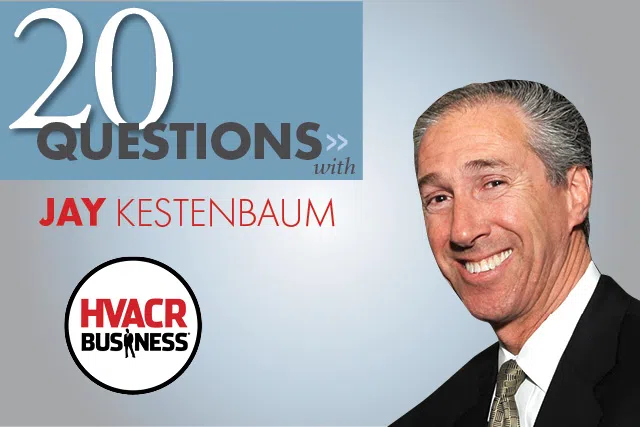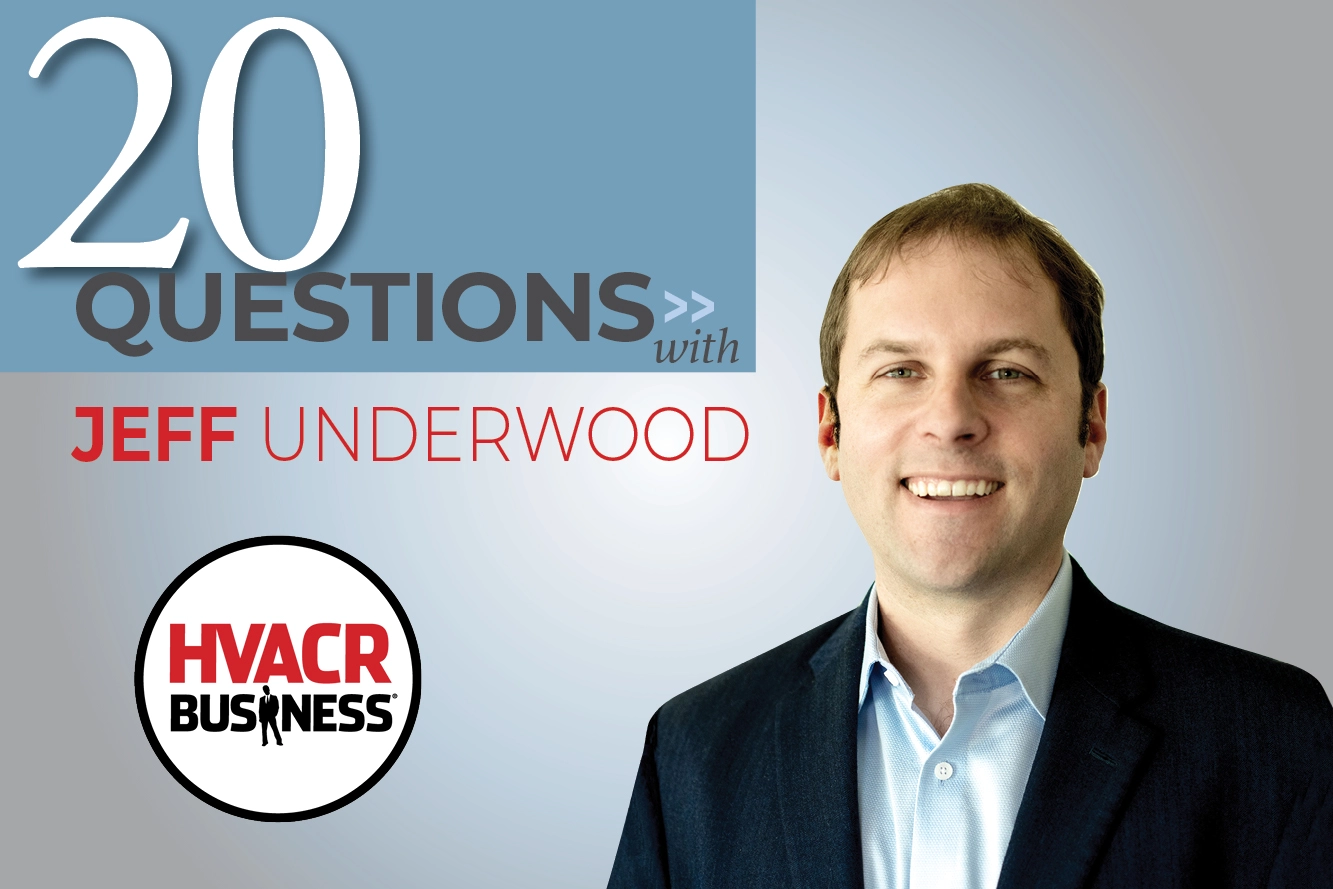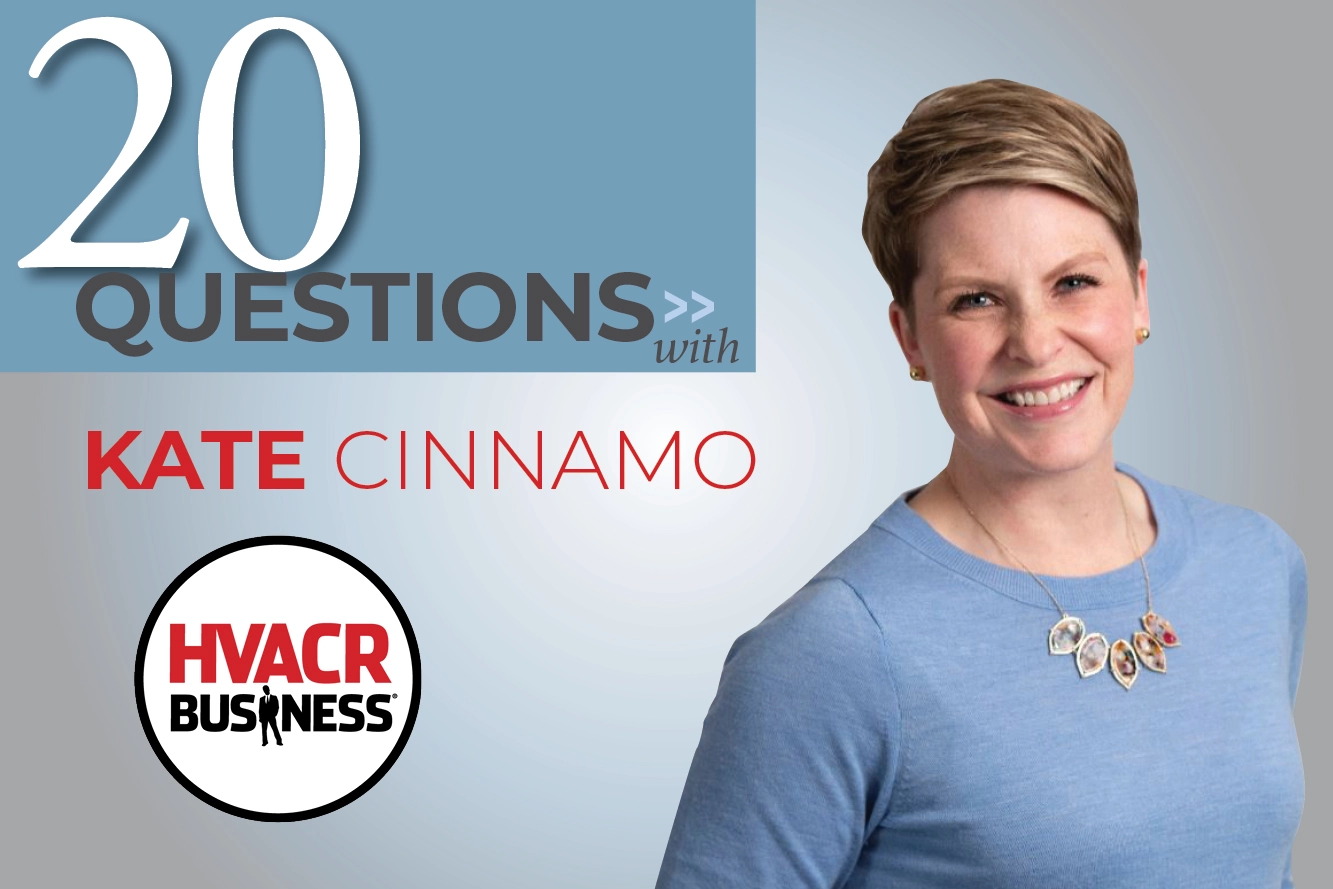Publisher Terry Tanker sat down with Jay Kestenbaum former president of Refron, Sr. VP of Sales and Purchasing at Airgas Refrigerants and currently Sr. VP of Business Development at Hudson Technologies. The two discussed leadership during adversity, business risk, managing private, and public companies and his retirement July 1st after 43 years in the industry.
1. Where did you go to school?
I received a BS in general business at NYU and an MBA in Accounting from NYU Graduate School.
2. What was your first job?
As a youngster and then teenager I worked for my father who started Refrigeration Sales Co., Inc.. However, my first formal job out of college was with Price Waterhouse where I earned my CPA.
3. Your father started Refrigeration Sales Co., Inc., in 1954, why not go to work for him immediately?
He believed you should gain your experience outside and get to know what your own worth is before joining a family business. After three years at PW I really wanted to come to work for my father.
4. Before FedEx, UPS and others he offered next day refrigerant delivery — how did he do that?
He would go to a public warehouse and contract with them to store a pallet of cylinders. The contract also required the warehouse to deliver the cylinders to customers within an alloted time frame. All paperwork sent to us in New York. It was a brilliant distribution network. Remember, no computers, faxes etc, just the phone.
5. When did you take over the business from your father?
It was about 10 years after I started, the mid 80’s, and it was one of the biggest challenges I ever faced. My father was a visionary and an incredible role model.
6. It was about that time you changed the company name to Refron - why?
The world was changing. We needed a snappier name. Something that was easier and would give us better branding.
7. You had a great run until 2008 why did you decide to sell Refron to Airgas?
The timing, business environment and acquisition multiples all lined up perfectly.
8. Why did you stay at Airgas rather than retire?
Airgas wanted me to stay for three years which was good. I was interested in seeing what it would be like working for a publicly traded company. I really liked the people I worked with, and no one lost their job per the agreement. My brother also stayed in charge of our IT and had designed a system that was way ahead of its time — even the refrigerant manufacturers recognize that. When Airgas sold to Hudson I was thrilled to join a smaller dynamic company.
9. How have you dealt with all of the significant changes the industry has gone through over your career?
Like many things there’s two ways of looking at changes. You can look at it as a headache, or you can look at it as an opportunity. I’ve always looked at the opportunities. If you make sound decisions, look toward future requirements and model your business based on where things are heading you don’t have to play catch up and that’s how you capitalize on opportunities.
10. What’s the most important thing to remember as a leader when you’re facing adversity like we did last year?
To have confidence and a sound business model. Confidence in the fact you have made the right decisions regarding the plan you are executing, the people you’ve hired, and how you’ve managed the company finances. If you have these right, you can weather the storm as long as you have a good team behind you.
11. What’s the best way to manage risk?
You have to plan for the obvious risks, but as a leader you have to be able to calculate risk and reward. I’ve found the best way to do this is to run a financially conservative company. This has allowed me to take risks that have worked, especially in times of opportunity.
12. What risks are you most comfortable taking?
I’ve tried very hard to maintain excellent relationships with suppliers at a very high level. This includes everything from an ability to keep information confidential, paying invoices on time, no bluffing no hyperbole. This, all builds trust. That trust has earned me answers to questions that not all may be privy too. Put enough of these together and you can make educated guesses and those are risks I’m willing to take, of course after doing the proper homework.
13. What is your management philosophy?
Be honest with people - always. One little white lie and you’ve lost trust. I worked hard at being a true friend to many associates — they know they can rely on me if they have a personal problem, and I have helped many through the years. It is a key element that brings loyalty over a long time.
14. How do you keep employees motivated working remotely?
It’s difficult, however the worlds technology enabled us to keep moving forward. Some companies can and will be seamless working remotely, others may employ a hi-bred of remote and in person. It will be more important than ever to make special efforts to keep in touch, and to keep relationships with remote staff.
15. What concerns you about the work from home movement?
I’m worried about the team aspect of business. Individuals working from home versus a whole department with comradery, friendliness, drive, enthusiasm, reliability and support. It’s the difference between having many good people and having a great “team.”
16. What’s the answer?
I wish I knew, only time will tell.
17. Where do you see the most growth for the industry?
Everywhere. Demand will be driving every segment. Commercial, residential, industrial and institutional. When the world is negatively impacted there are always opportunities for those who move quickly to take advantage of unique opportunities.
18. What’s the largest difference between managing your own company and managing a public one?
Decisions. At a private company they happen fairly quickly. Senior managers would discuss, use their gut feeling and move forward. At public companies decisions turn into meetings, memos, emails, legal approvals and more. Public companies are different as decisions are often influenced by the need to satisfy stockholders, investors, and what the “market” is looking for, and not necessarily solely based on what is good for the company at that time.
19. You're retiring the first of July. What will you miss most?
I will miss so many great people at Hudson who I have worked with and who have become great friends. I will also miss the excitement of an ever-changing industry — I have never had a boring year after 43 years in this industry.
20. What are your plans for retirement?
Spending a lot more time with family, more travel and my work with several charities. I also hope to stay in touch with many people as refrigerants will always be part of me.






